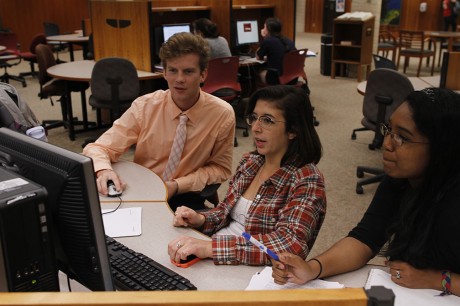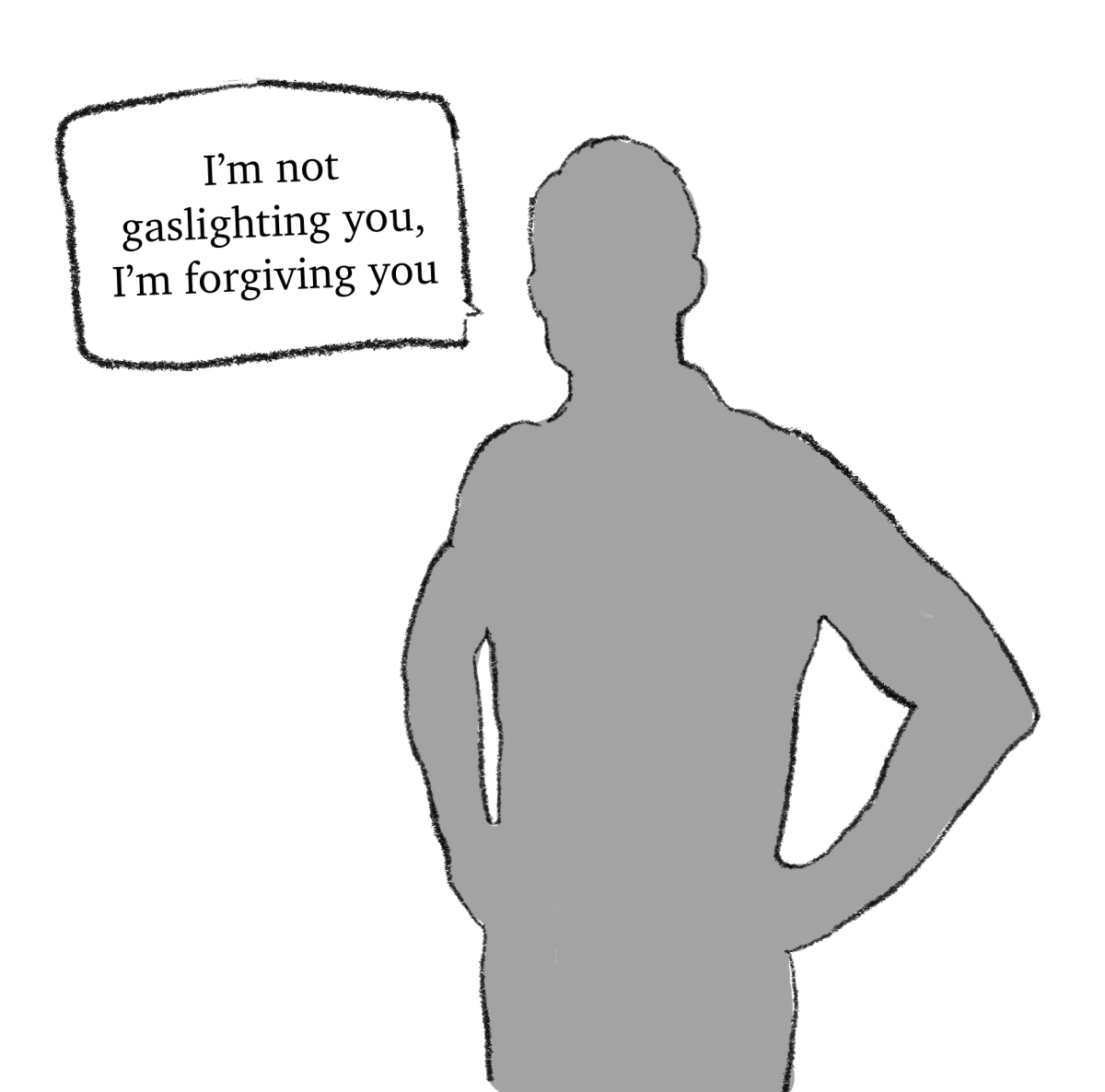
It is the first week of a new semester, and sophomore Monica Clifford is reading through the syllabi for her classes. Suddenly, her heart drops, and she momentarily stops breathing. Her roommate glances away from a new episode of Breaking Amish just long enough to see Clifford fall to her knees, her face downcast. Clifford’s concerned roommate asks what is wrong, but Clifford is too upset to respond.
Clifford has just read that an assignment in one of her classes is a group project and the anxiety and dread have overcome her. Many students have this same sort of reaction upon the realization that they have a group project, but there are some students who look forward to the challenges and opportunities group projects present.
“Groups can make daunting assignments more manageable with a division of the workload. Fresh ideas can arise from the different perspectives, and group projects give students the chance to improve group communication abilities,” said junior Sam Roberts.
Clifford agrees that group projects can be enjoyable under the right circumstances, and she understands why professors believe that they are beneficial.
“If you’re working with people who have a work ethic similar to yours, it’s a blast. You can obviously meet new people and share ideas, and working on a project together often opens your eyes to new ways to research and present information,” Clifford said.
More often than not, however, Clifford thinks that the negative aspects of group projects far outweigh the positives.
“Time is a big issue. Because everyone in college is excruciatingly busy, it’s difficult to find time in which to work with your group, especially if it’s more than three people. Effort is another. Some students really don’t want to put in the amount of work required, which annoys those students who are sincerely trying. Control is the last. When one student takes the leadership position and ends up controlling the rest of the group, this results in a poor group dynamic,” Clifford said.
Although he does not have a problem with group projects, Roberts knows where a lot of students are coming from in their aversion to these kind of assignments.
“Being a perfectionist, it makes me nervous that I am not doing 100 percent of the input. I feel most comfortable with work that I myself have done and not others. A lot of students, including myself, have had that one group member who doesn’t seem to do anything, and then we have to do their portion of the work which is really annoying,” Roberts said.
Jacob Tingle, Assistant Professor of the Practice, Business Administration, frequently utilizes group projects in his classes because he believes that is where intellectual and personal growth really occur.
“There’s significant value in learning how to work with other people you’ve never met before and might not ever see again, and it’s important to learn to work with people who have different areas of expertise. That’s the way the world is. I see significant value in placing people in an environment that’s a little uncomfortable because I feel like that’s really where true learning can take place,” Tingle said.
Tingle acknowledges that one of the liabilities of group projects is the chance of encountering social loafing, a social psychological phenomenon of people exerting less effort to achieve a goal when they work in a group than when they work alone.
“There’s always the social loafing phenomenon. Some people refer to it as riding coattails. Somebody can also get so frustrated that they end up doing a lot of the work, which is negative for that person because he or she is not getting the full experience of actually having to share responsibility. Those are the two extremes, and if you end up with those two extremes on the same team, the people in the middle can just be totally left out of the process all together,” Tingle said.
Tingle takes a unique approach in structuring the groups students will be working in for assignments in his classes.
“For every one of my classes, I make you sit with your group all semester from the day I assign the groups on the second day of class. I’ve found that helps develop and speed up the trust building within the group,” Tingle said.
Tingle knows that many students dislike group projects, and he feels like some of that is due in part to the way teachers design group projects.
“Sometimes I feel like we as educators don’t do a good enough job facilitating that team experience. I can either try to enhance group camaraderie or I can just hope it happens on its own, and I think far too often we just hope that it will happen,” Tingle said.
Despite her stance on group projects, Clifford is aware of the lessons she can take away from them that will ultimately help her in her future career.
“I know that pretty much regardless of our occupation, we will be forced to work with our coworkers in various endeavors,” Clifford said. “Since I’m pursuing on a career in education, working well with others is an invaluable skill. It’s truly imperative that we are capable of collaborating with our peers, as much as we might resent it.”







